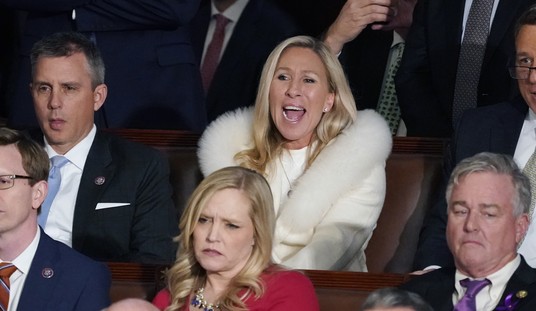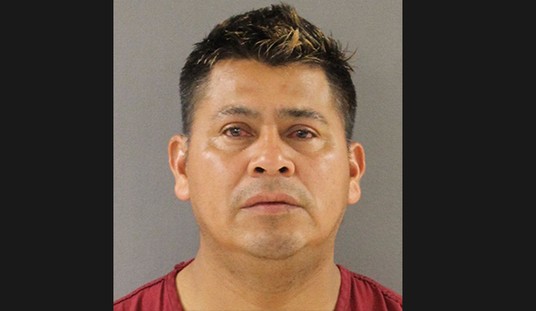President Obama proposed sweeping regulatory change in the financial system yesterday. Some questions must be asked:
1. Does the proposal make the U.S. economy impervious to bubbles and busts?
2. Does it make capital markets run more efficiently so that the invisible hand can prevent market bubbles?
3. Does it take pressure off the taxpayer?
4. Does it prevent moral hazard?
The answer to all four is a resounding “no.” Obama simply has expanded the role of government into the marketplace, without protecting anyone.
This proposal will cost you money.
Recall that it was the financial industry’s reaction to government policy that created the bubble. The Federal Reserve left interest rates extremely low for too long a time, while the House Financial Services Committee and the Senate Banking Committee failed to supervise Fannie Mae and Freddie Mac. Other regulators in the U.S. government simply didn’t do their stated jobs. This financial panic sits at the foot of government, not at the foot of Wall Street. There are many targets for finger-pointing, but the seeds of the bubble were planted by federal policy.
Yet Obama’s proposal vastly expands the interference of government, increasing regulation of financial firms!
Recent stress tests gave the financial marketplace very little information as to the health of the firms. The standards set by the Treasury were so low, and in some cases so unrealistic, that the tests themselves were meaningless. Yet Obama proposes more stress tests at the government’s whim — creating anxiety for shareholders and more costs for the business.
He places a lot of power with the Federal Reserve to police the marketplace. The Fed doesn’t have the knowledge or firepower to accomplish this task, nor is it the proper role of the Fed as the policing creates too many conflicts of interest.
Obama looks to regulate hedge funds, private pools of capital that only the wealthiest investors can be a part of. Hedge funds are not like mutual funds and should be left alone.
Obama wishes to regulate bank compensation. This will restrict banks from bidding for the best and brightest personnel. Who would you rather deal with, the post office or FedEx?
Instead of privatizing Fannie and Freddie, Obama hands them to the Treasury and Housing and Urban Development. What will happen here? Fannie and Freddie will become public utilities, politically run, and then make political and populist loans. Another disaster waiting to happen.
With regard to financial markets, Obama does very little to alter the existing playing field. Instead, he presents vague verbiage to be interpreted at anyone’s whim: ” … strengthens laws to prevent ‘unsophisticated parties’ from trading derivatives.”
Who will interpret this, and what happens when the administration changes? Obama missed an opportunity here to give smaller investors a chance in the marketplace by changing some of the rules. Instead, the Wall Street banks preserved the structure they desire and will continue to run roughshod over investors.
To protect investors, Obama looks to create yet another new agency. We all know how well government agencies perform — just look at how well the SEC has exposed fraud in the past few years. It took insiders to turn in Bernie Madoff. If they hadn’t, would the SEC have found him?
Obama broadens FTC power over the banking system, as if banks don’t have enough regulators to deal with.
He requires certain companies to have 401(k) retirement plans for employees, but investment choices are dictated by statute or regulation!
Obama clearly doesn’t have faith in free markets. He wants a centrally planned system in which a bureaucrat dictates what the market should do. When the market doesn’t behave as planned, Obama punishes the participants. Markets do not, cannot function efficiently when they are centrally planned and forcefully regulated.
So things are going to cost a lot more. Fees will rise, and banks will create new fees to comply with regulations. Your choices will be limited. If you want to assume more risk, you are probably going to have to figure out different ways to do it. Access to capital will eventually be curtailed, since investment vehicles and banks that provide it will be heavily regulated. It will be tougher and more expensive to start a business.
Eventually, capital will find its way out of the United States. Other areas of the world are trying to attract investment capital: Singapore, Dubai, Hong Kong, and London will readily accept the role of dominant world financial center if Obama wants to cede New York City. When capital evacuates and gets invested elsewhere, it’s tough to get back.
The restrictions that Obama is proposing are essentially meaningless when it comes to protecting investors against bubbles. If everyone decides to use their money to do the same thing — buy internet stocks, buy real estate, invest in anything — none of the proposed regulations or regulatory agencies will stop it. Bubbles happen in capitalistic free market societies. The restrictions that Obama is proposing will curb innovation, the catalyst of entrepreneurial activity. Reducing innovation, and making capital more expensive, will cause a drop in entrepreneurship, precisely the type of activity that the U.S. needs to grind its way out of this deep recession.









Join the conversation as a VIP Member